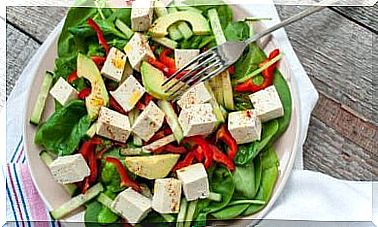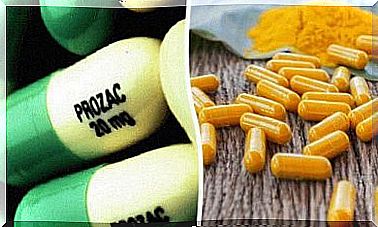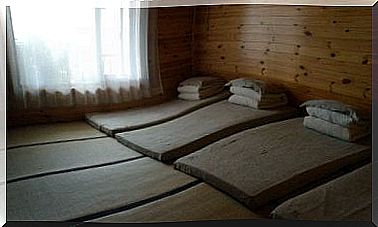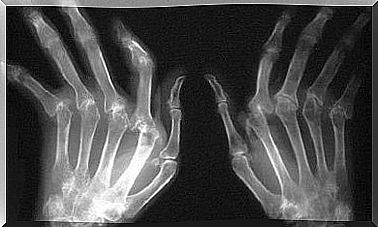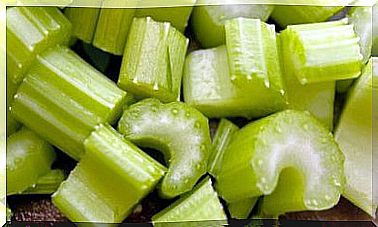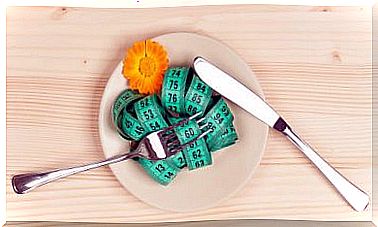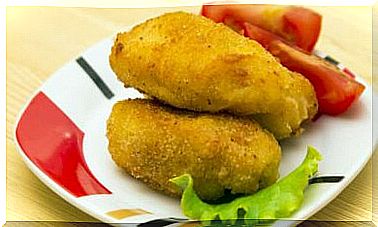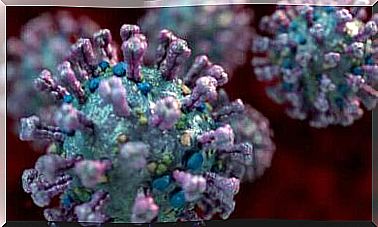How To Use Vitamin B1 As A Mosquito Repellent
Mosquito bites hurt and are very annoying. For this reason, we are going to tell you how to use vitamin B1 as a natural mosquito repellant.
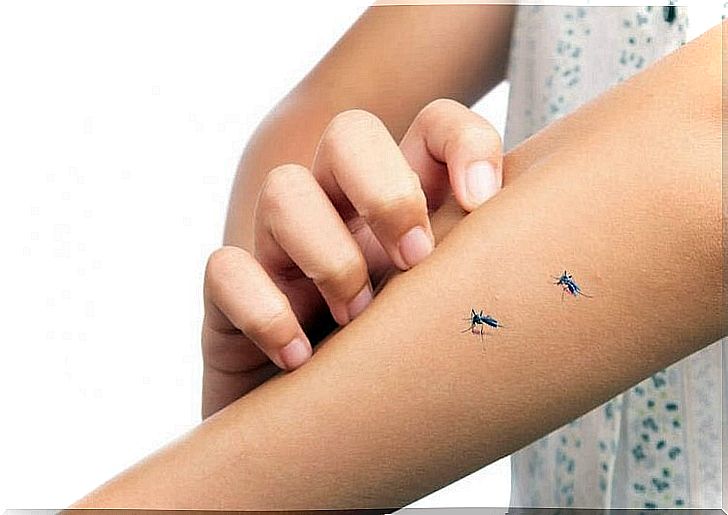
Having mosquito repellent on hand is very important. It is estimated that more than 750,000 people die each year from diseases caused by mosquito bites.
While there is a wide range of chemical repellents and insecticides, you can also choose more natural options.
One of the very simple solutions against mosquitoes is to use vitamin B1 as a repellant.
Mosquitoes are found all over the world. There is hardly any place, from north to south, that is not affected by these insects.
Before, mosquito larvae did not survive the cold. However, as winters are warmer, mosquito larvae do not die off and they are increasingly present.
Most commercial repellents and insecticides contain chemical compounds that can compromise human health, especially that of children.
However, these products fail to control the mosquito populations that continue to grow and bite millions of people around the world.
Mosquito repellants are not without side effects. Some are not recommended for pregnant women or young children.
In addition, sunscreen and mosquito repellants are not recommended. In addition to knowing how to choose an effective mosquito repellent, it is always interesting to have some practical information.
The enemy: mosquitoes
Mosquitoes are attracted to chemicals expelled by the human body. Up to 45 meters away, mosquitoes detect the smell that emanates from bacteria that we have on our skin.
They also like substances like lactic acid, ammonia, carboxylic acid and octenol which are expelled by breathing and sweating. Just as they are attracted to carbon dioxide, heat, and human odor.
Since mosquitoes are attracted to body odors (sebum, sweat), it is important to adopt good personal hygiene. Some fragrances can attract females, others repel them, so there is no hard and fast rule about fragrances.
Mosquito bites
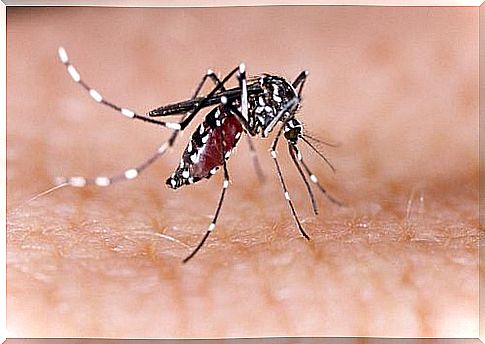
Female mosquitoes are most interested in human blood, as they need iron and protein to lay their eggs. To male mosquitoes, humans are not that attractive.
Diseases transmitted by mosquito bites
Once mosquitoes bite humans, they can cause disease and affect millions of people around the planet. Among the main diseases transmitted by mosquitoes, we can cite the following:
- Yellow fever
- Malaria or malaria
- Dengu
- Chikungunya
- Zica
- Lymphatic filariasis
- West Nile virus
The main measure against these diseases is prevention: bites must be avoided.
It is also good to have mosquito repellent on hand. After a person is infected, they basically need to rest, drink plenty of water, and wait for the symptoms to go away.
For most of these diseases, there are no vaccines, except for yellow fever, and no treatments, except for malaria and lymphatic filariasis.
Although these diseases cannot be considered fatal, they are particularly dangerous for:
- the infants
- young children (up to 5 years)
- pregnant women
- old people
- people with diseases that affect the immune system
Commercial repellents and DEET
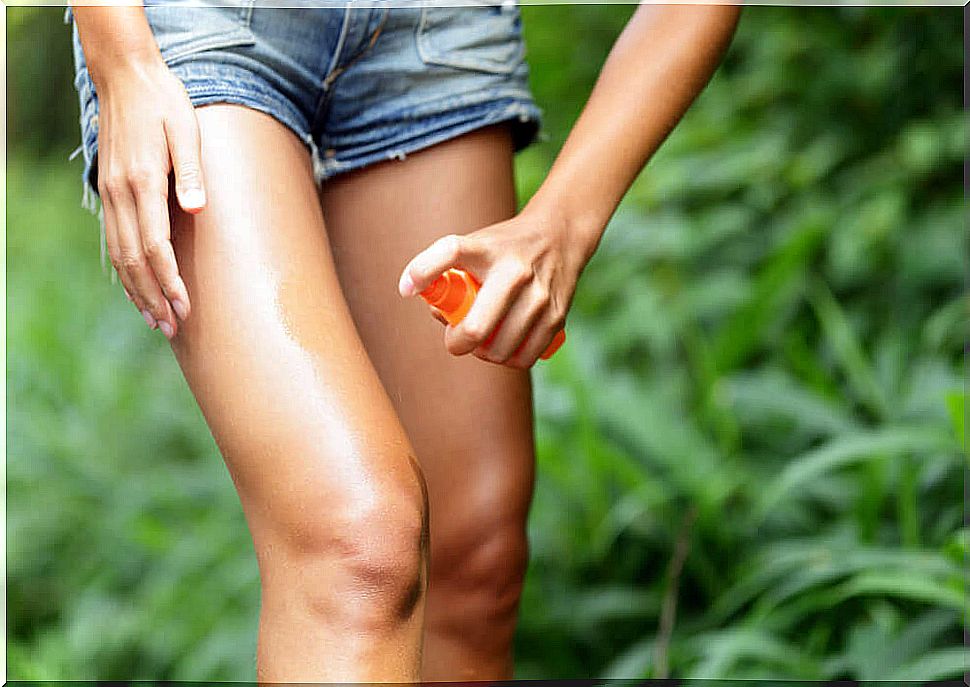
Although vitamin B1 as a repellant is a great option, you can use commercial repellents with caution.
Indeed, the DEET (diethyl-meta-toluamide) they contain is effective against mosquitoes. In fact, the World Health Organization approves the use of DEET.
DEET works by blocking the smell receptors of insects, including perhaps those that detect carbon dioxide or lactic acid.
DEET should not be ingested, nor sprayed on mucous membranes or in the eyes. If DEET is applied at the same time as sunscreen, it greatly reduces the effectiveness of the latter.
A product that contains between 20 and 30% DEET can scare away mosquitoes, but many repellents or insecticides have concentrations up to 100%.
It’s a chemical that melts plastic and yet we put it on the skin.
Prolonged exposure to this substance can damage the functions of the brain and nervous system. So it is better to use other alternatives like mosquito repellent.
In children, this potential increases, since their skin has a greater capacity to absorb elements from the environment.
For this reason, repellents may have more potent effects on their developing nervous system.
Warning ! You should not use chemical repellents for babies.
Among the potential harm that exposure to DEET could cause, the following symptoms should be noted:
- Memory loss
- Headache
- Damaged brain cells
- Tremors
- Convulsions
- Skin irritation, hives and blisters
- Nausea and vomiting
- Hypotension
- Difficulty in breathing
- Pain, irritation and watery eyes
Vitamin B1 as a natural mosquito repellent
Vitamin B1 acts as a natural repellant. As it is soluble in water, it is excreted in urine, skin and sweat when it exceeds the dose required by the body.
The vitamin B1 or thiamine “rejected” by the body produces a smell “unbearable” for mosquitoes.
In addition, even if consumed in high doses, it does not represent any risk for pregnant or breastfeeding women, or for children.
This is why the use of vitamin B1 is a very effective measure to repel mosquitoes. To take advantage of all its benefits, adopt the following recommendations:
- Consume a supplement of 100 grams of vitamin B1 plus a supplement of vitamin B.
- Dissolve a vitamin B supplement in a body lotion or cream, then apply it to the exposed skin. You can use this mixture maybe for babies.
- Increase the intake of foods rich in vitamin B1 such as yeast, oats, brown rice, asparagus, liver, and eggs.
- You can also increase the consumption of garlic to get vitamin B1 as a repellant.
- Use other natural repellents, which are also unpleasant to mosquitoes, such as lemon, cinnamon, vanilla, lemongrass, and eucalyptus essential oils.
Other preventive measures
- Avoid farms or places with a lot of animals. Avoid containers with standing water, as this is where the larvae develop.
- Wear tight, light-colored clothing.
- Use mosquito nets on windows and on beds and cribs.
- Calendula flowers emit an unpleasant smell to mosquitoes, so it’s a good idea to have a few plants nearby.
- Mosquitoes are most active at the end of the day. Avoid being outdoors without protection during this time.
- Also use candles or lemongrass or camphor oils to repel mosquitoes.
- A mosquito has bitten you: Wash the affected area with soap and water. Marseille soap has a calming effect. Just rub at the site of the bite.
Lemongrass oil is an exceptional natural mosquito repellent. It is extracted from the Cymbopogon Nardus plant and has remained, for centuries, a central element of traditional Chinese, Indonesian and Sri Lankan medicines.
It has been used since ancient times to treat rashes, as well as inflammation and other types of pain.
In addition to taking advantage of its essential oil, you can take advantage of the plant to decorate your interior, as well as to repel different types of insects or as a mosquito repellent.
All the benefits of nature are within our grasp, we only have to use them in simple home remedies. Find out what lemongrass oil can offer you!
